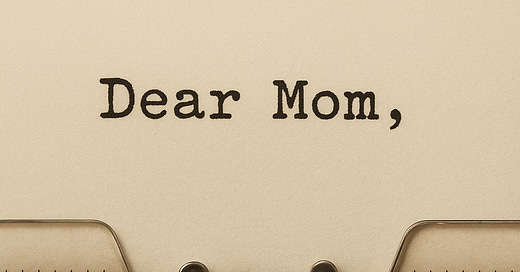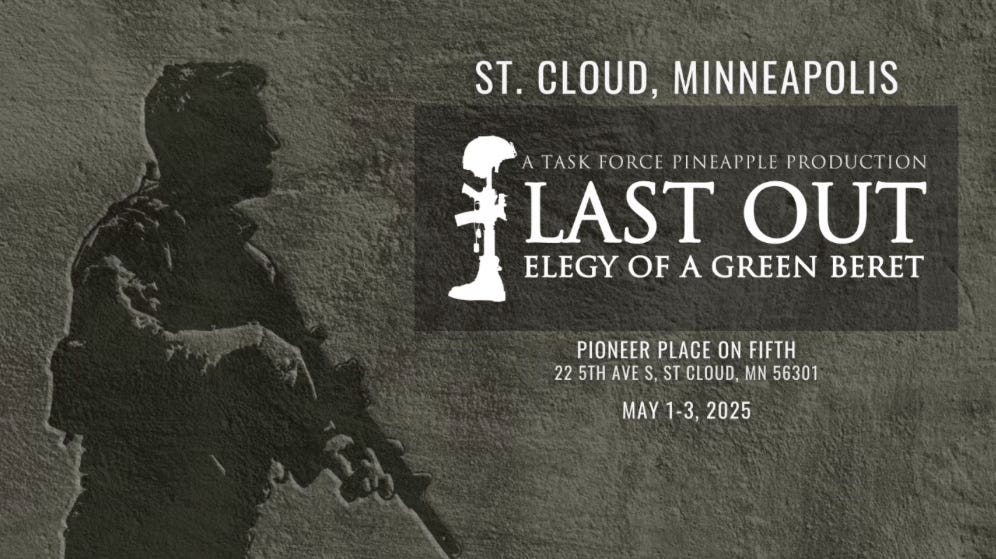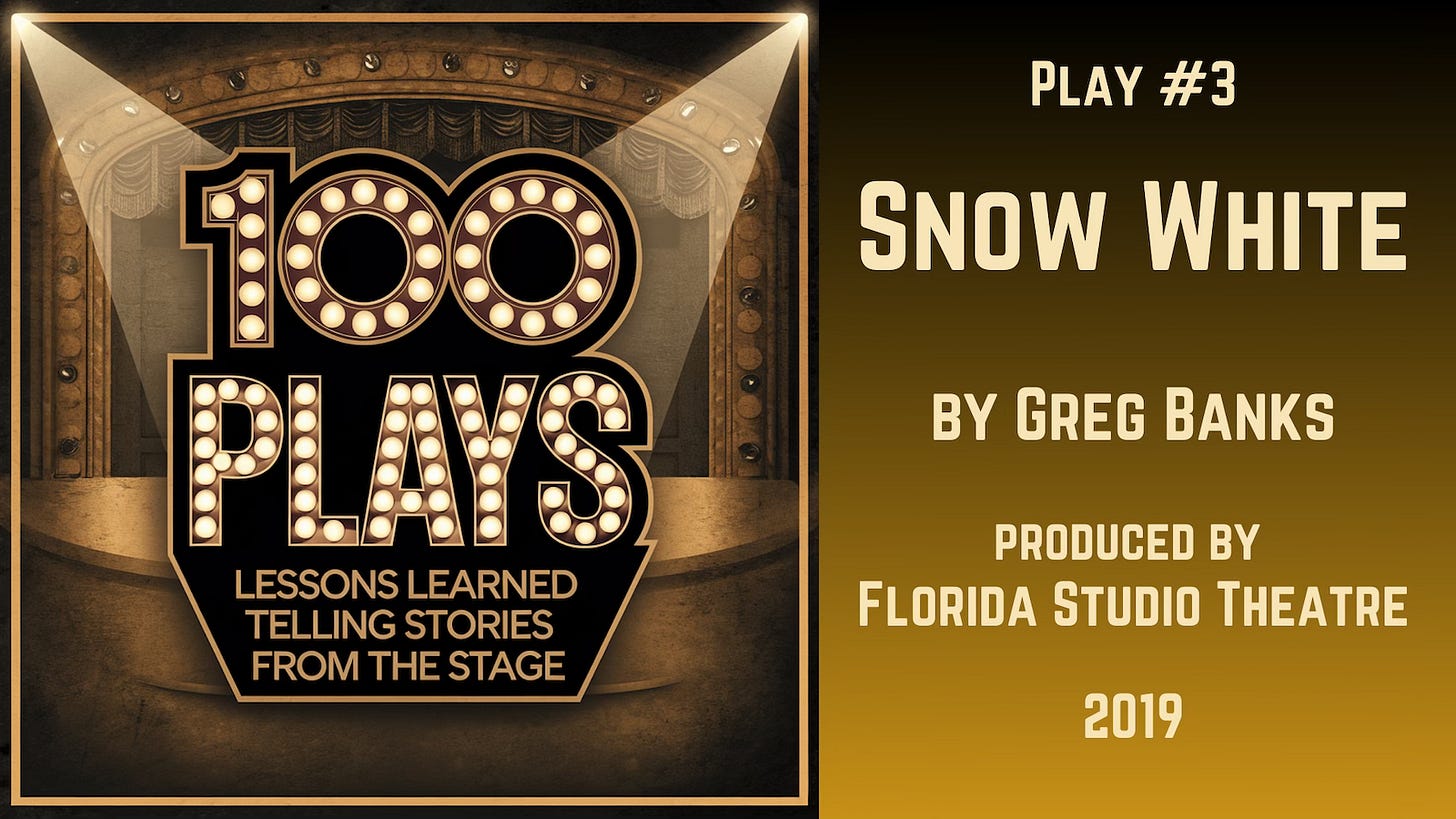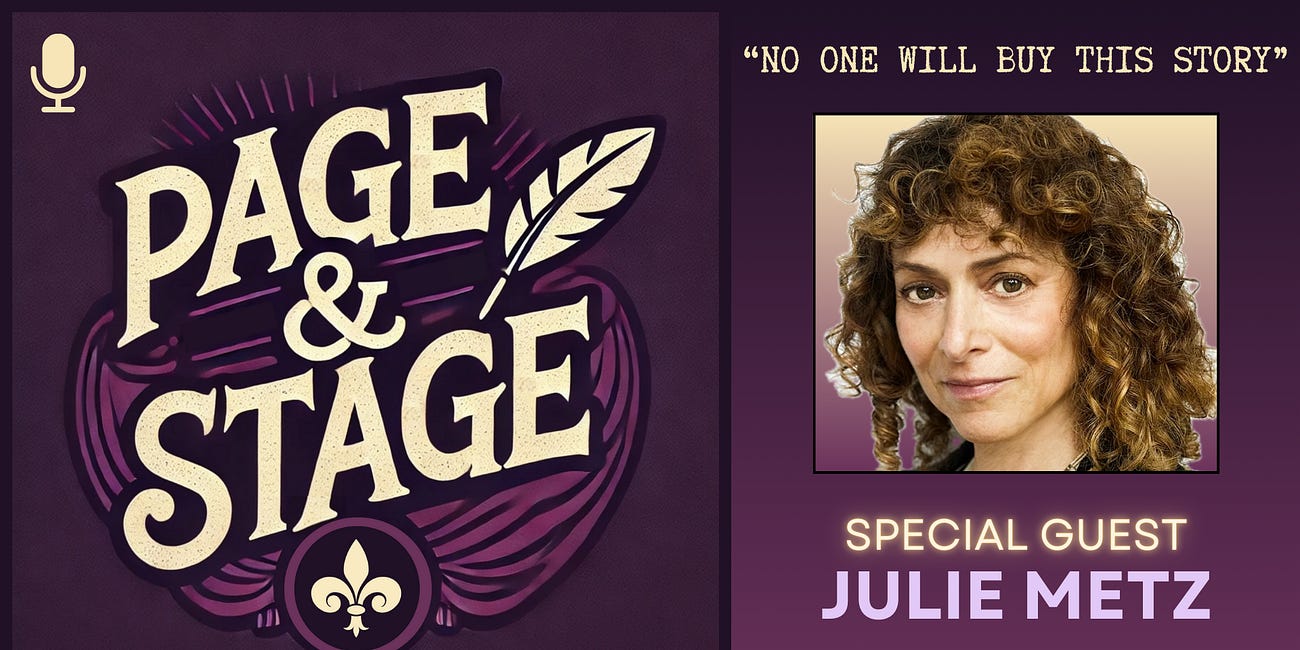Hello friends—
So next week I’ll be zipping north to St. Cloud, Minnesota, with my awesome LAST OUT team.
We’ll be presenting the show for three performances, May 1-3, at this incredibly cool venue, Pioneer Place on Fifth.
Bonus—my equally cool Aunt Von, Uncle Randy, and Cousin Ransom happen to live just an hour away, so they’re gonna get to see the show!
If you happen to find yourself up yonder, or know any cool folks who live in the area, come say hi and catch a performance. Mash that purple button to learn more and get tix.
Storytelling tip o’ the week
Last week I talked a bit about authenticity and how it pertains to perfectionism.
I’ve discovered that “authenticity” is my word for 2025. It’s cropping up all over the place in my work and in the work of others who most consistently exert a gravitational pull on my attention.
So, this week, here’s a double riff on authenticity. First, as it pertains to the voice of memoir, and second, as it pertains to how I updated my ABOUT section.
THE VOICE OF MEMOIR
Between taking a class, teaching a class, preparing my 100 PLAYS podcast, and storycoaching a couple different playwrights as they turn their true stories into theatrical experiences, memoir has been on my mind a lot the last few months.
Memoir is not autobiography. Memoir is not a list of events. Memoir is not even history.
Memoir is the vigorous exercising of insatiable self-curiosity.
Ultimately memoir is meant to be received by an audience, either a one-to-one writer-reader relationship, or a 1-to-many performer-audience relationship.
So all those memories you churn up through intense, insatiable self-curiosity need to be curated and filtered through an authentic voice.
I’ve learned three simple ways to tap into your authentic voice from teachers and colleagues.
First, from a long-time theatre reviewer named Mark. He told me recently that the best piece of advice he ever received about writing reviews was this: “Write like how you talk.”
I think that is also a fantastic way to approach your memoir writing. Approachable. Conversational. Bellied up to the bar.
Second, from another long-time theatre reviewer named Judy. She guested into a class I was teaching many years ago and told the students that every time she sat down to write a review, she would start with: “Dear Mom—”
Again, what a fabulous way to shift your mindset from critical to conversational. To tap into the casually intimate relationship you want to have with your reader/listener. Familiar. Relatable. Sitting around the kitchen table sipping coffee.
Third, from the wonderful Julie Metz—and check out the link to my podcast convo with her down below! She shared how her memoir started out as a series of emails. This wild, you-wouldn’t-believe-it series of events happened to her, and she had many friends reaching out to her, checking up on her. She tried at first to email each of them back individually, but that became overwhelming. So she began to write one big, all-encompassing email update, like every week or so, and she would send that to everyone. When enough time had passed to ensure clear-eyed narrative distance rather than real-time therapy (note—nobody wants to read real-time therapy!), and she began writing her memoir, her earliest drafts were built out of those email missives. That approach immediately framed her authentic voice. Epistolary. Reflective. Grateful for the attention and care being paid.
Each of those three approaches taps into the energy of authenticity, specifically the connective energy of authenticity. Not performative. Not preachy. Rather… vulnerable. Unassuming.
Dear Mom—
This is how I talk.
And boy howdy do I have a tale to tell you…
ABOUT PAGE&STAGE
I encourage you to give my newly reworked ABOUT section a quick read, as there’s plenty more context about what I’m up to with all these newsletters, posts, and podcasts. You can read it HERE.
But I specifically want to make you aware of how I’m handling—cue the scary music!—affiliate links.
You’ll often see in my newsletters and show notes that I link to other sites. Maybe a podcast guest mentioned a cool book they were reading, or they have a project or resource they are offering.
Here’s my take on those links, steeped in authenticity…
I will always do my best to link to the primary source. I will only link to third-party or “middlemen” sites if I absolutely cannot track down the original manufacturer or publisher.
I do NOT take affiliate income from third-party sources. I find that a bit icky. I signed up for a program like that once, and I immediately got bombarded with emails telling me all the stuff on sale that I could push onto my readers and audience.
No thanks.
I don’t want even a whiff of “does Jason really like that thing, or is he just selling me?” to enter the equation.
The only affiliate links I will ever offer will be clearly identified, will connect to primary manufacturers, and will be for items I personally use and love.
For example, I include an affiliate link for Riverside.fm in all of my podcast posts, because I personally use Riverside.fm to record, edit, and produce both my podcasts. It’s an awesome app for which I personally pay an annual subscription.
I’ll also be signing up as an affiliate for Qwerkywriter. You may recall my beloved Rebecca gifted me a sweeeeeeet new retro Qwerkywriter keyboard for my birthday, and I am typing on it right/write now! It. Is. So. Cool.
And that’s my point about authenticity. If I don’t personally pay for and use it, no way am I gonna push it on you.
100 Plays
The next episode of 100 PLAYS will hit your inboxes MONDAY.
In this episode, I talk about the power of practice, the ease of transformation, and the magic of baseball caps.
You’ll be able to listen on the Substack App, and all episodes are also available on Apple or Spotify.
Or, if you want to put a face with a voice, the video version will be available on YouTube.
The Page&Stage Podcast
A reminder to check out my convo with the incredible Julie Metz.
New York Times bestselling author Julie Metz joins me to explore the power of memoir, the healing nature of storytelling, and the writer’s journey from tragedy to transformation. We dive into the challenges of historical research, the importance of honesty and dialogue, and the delicate balance of being both journalist and subject. Julie also shares lessons from teaching, book clubs, and a surprising literary death match. A rich, honest conversation about writing, memory, and meaning.
You can listen on the Substack App, Apple, or Spotify.
And the video version is available over on YouTube.
Thanks as always for reading, and have a great weekend—
Jason “Dear Mom” Cannon








Thanks again for a great conversation about writing life!